Home \ Latest Notice \ Annual Summary Meeting of Comprehensive Development Project for Rural Communities in Liangshan
Author: Agen Riga, Project Leader
The Comprehensive Development Project for Rural Communities in Liangshan Yi Autonomous Prefecture in Sichuan Province of Humana People to People and Kadoorie Charitable Foundation was launched in March 2018, and has been implemented for more than a year. The project held a two-days annual meeting in June 2019, mainly to summarize the achievements and existing problems during the implementation of the project last year, and to provide a reference for the next implementation
The annual meeting is divided into two parts. First is to visit the project village and the participating farmers to understand their level of participation, evaluation of activities, current changes and existing problems, etc.; second is to summarize the content based on the visit.
On June 28th, 2019, Sheng Xia, department manager of Humana People to People, Agen Riga, project leader, Tuojue Shiri, the deputy head of the Le'anTownship Government, along with the cadres of Butuo County Poverty Alleviation and Resettlement Bureau, village coordinators, and villagers' representatives paid a visit to Shougu Village and Luo'en Village, inspecting pig raising, chicken breeding, vegetable planting, preschool hygiene, villagers' hygiene, nutrition and health, and family courtyard floor construction.
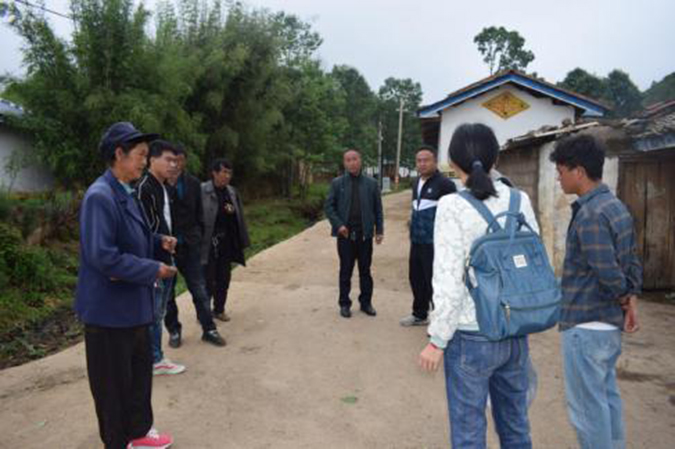
During the visit, Jige Moheizuo, a special family pig breeding farmer, said that the boars are growing very well. At present, it has inseminated all sow distributed in Shougu Village. The success rate is 100%. No repeat breeding. For long-term sustainability and in order to increase the income of special families, the breeding pig raising management committee negotiated with the villagers and decided that the boar breeder will be paid 40 Yuan for each insemination of one boar. Jige Moheizuo was very happy about it, and said she will breed and manage boars very well. Because the boar variety is good, farmers who have not yes participated in the project will also be looking for insemination.
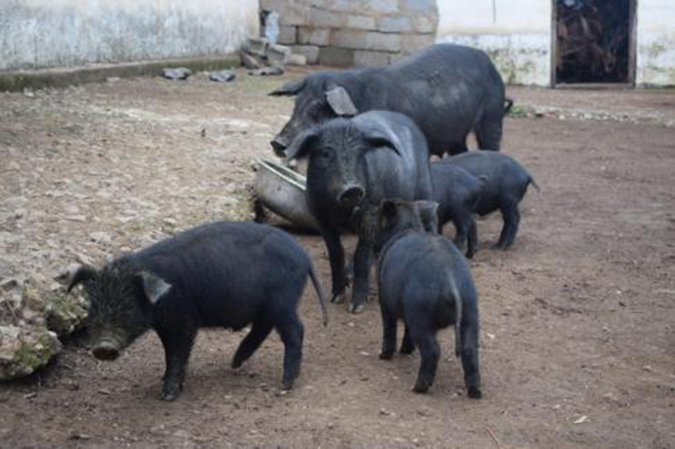
The project staff also asked about the survival rate and egg production of chickens. The current survival rate of laying hens is more than 80%. Every family can receive eggs every day and provide eggs to their children. The delegation also visited the farmers who set up their kitchen gardens and checked the gardens. They found that the vegetables grew well and had numerous varieties. Even farmers without kitchen gardens would also grow vegetables on hillsides not far from home. During the exchange, the villagers reported that after participating in the cooking courses organized by the project, they learned more skills, gradually changed the single eating habits of the family, and promoted children’nutrition in the family.
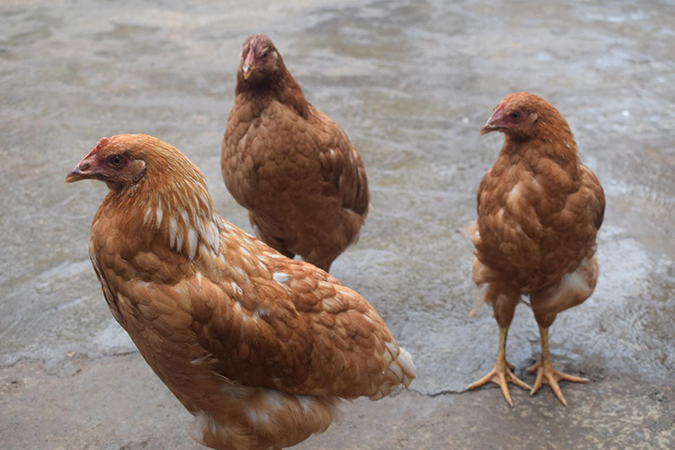
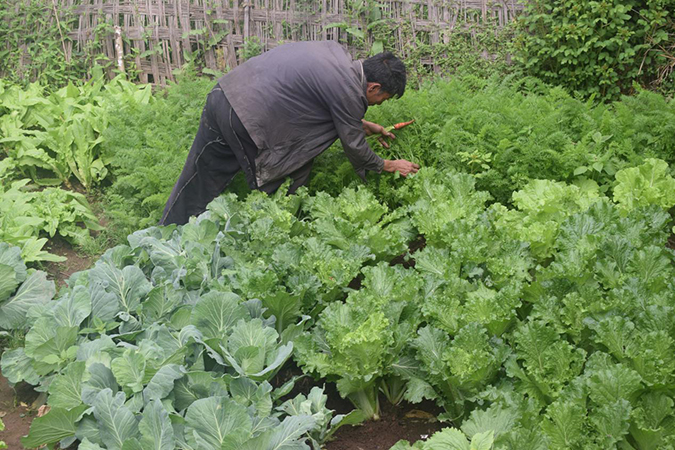
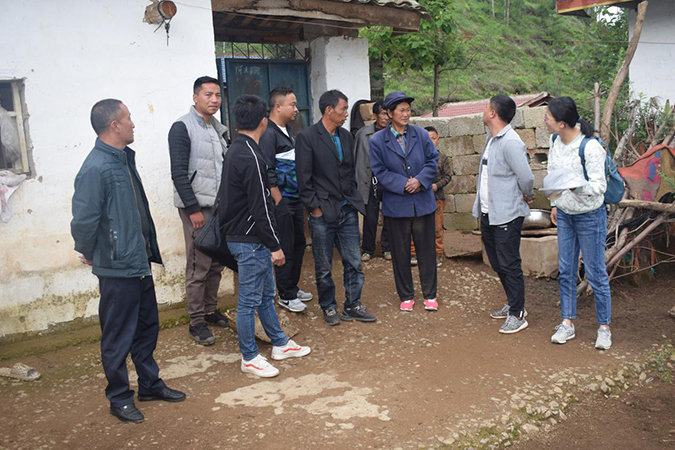
When checking the improvement status of the family courtyard, it was gratifying to find that the courtyard in villager Lizi Yougui’s house was of reasonable quality and design, the sanitation had also improved. After reconstructing the courtyard, Azi Lari family moved the farm manure from inside of the yard to outside of the house wall and made a compost pond. The pigpen was moved to the vegetable garden. He smiled and talked about the changes of his home hygiene status, cleaning is also convenient now. It is not as dirty as before. Children can play in the courtyard. Children’s hygiene habits are gradually developed. If they do not wash and clean every day, they will not go to class.
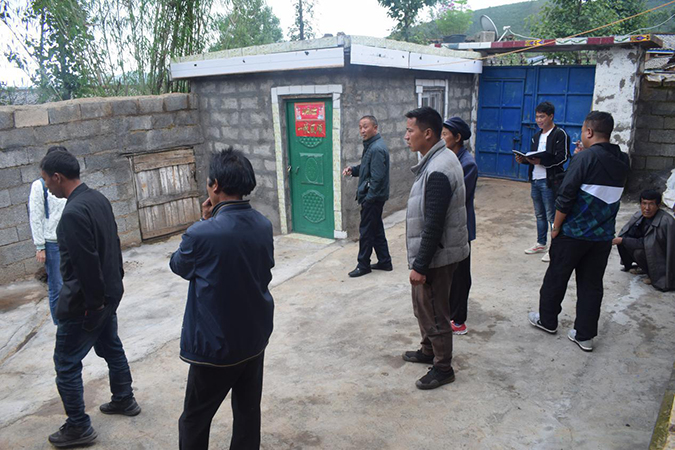
The delegation also checked the preschool sanitation situation in Shougu Village. Through the teacher's routine hygiene classes and daily sanitary inspection and supervision, the children's hygiene habits have gradually developed, which greatly improved compared to before.
During the visit, the project staff did not forget to talk to the villagers patiently repeatedly about the importance of changing and developing their health habits and dietary habits, and of course they did not forget to listen to the needs and difficulties of the villagers.
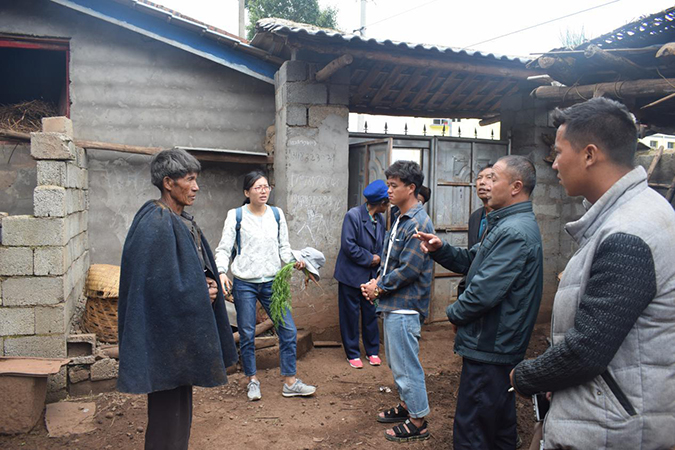
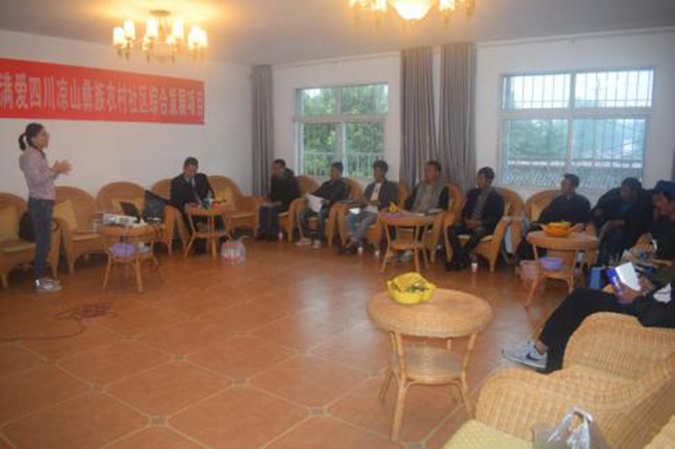
On June 29th, we had a summary seminar based on the results of the visit on 28th
Project first year output
1. A 70m³ and a 20m³reservoir were built. Farmers were mobilized to work for it. The drinking waterproblem for 1,100 villagers in 280 families in Luo’en Village has been solved.
2. Laying hens were distributed to 110 children's families. The laying hens' current survival rate is 80%. Two to three eggs can be harvested daily for children to eat, which increases children's nutrition. Extra eggs will be sold to increase family's economic income.
3. Vegetable seeds were distributed three times to 110 children's families, and parents were trained in cooking techniques and children's nutrition knowledge, which allowing family members to eat fresh vegetables, enriching nutritional intake channels, improving children's nutrition, and also improving the parents' vegetables planting techniques.
4. A physical examination was conducted for 119 children. The project distributed hygiene products to 165 children and set up hygiene classes to allow children to develop good hygiene habits.
5. Breeding pigs were distributed to 32 farmers and began to produce in June 2019. It is expected that in mid-July 2019 more piglets will be passed on to specially poor households improving the economic situation of specially poor families.
At the meeting, leaders at all levels made speeches. Tuojue Shiri, the head of the Tuojue township, said that the project not only provided material help to the villagers, but also inspired the villagers' self-learning ability and made the villagers realize their role of the master. We can't wait for blood transfusion; we need to make blood spontaneously so that we can solve the problem of poverty. Participating units, village committee representatives, and villager representatives affirmed the changes of Shougu Village and Luo’en Village brought by the project. At the same time, they also raised some questions and suggestions, which need to be done more delicateon current basis: The housing for boar breeding needs to be expanded, and the sanitary conditions need to be further improved; the reconstruction of courtyard lacks strong labor force, so it currently is only done by women, and as a result, the quality of the reconstruction is not up to standard, surrounding farmers need to be mobilized to help.
At the end of the meeting, Sheng Xia, Department Manager of Humana People to People, made a summary, and gave suggestions on existing problems (the reconstruction of villagers' courtyard, the addition of hardware equipment for nursery classes, the lack of water in the 345 group of Luo’en Village, the management of breeding pig raising, and the reconstruction of a dangerous bridge), she emphasized that the project is always operated and implemented in accordance with the wihes of the villagers.
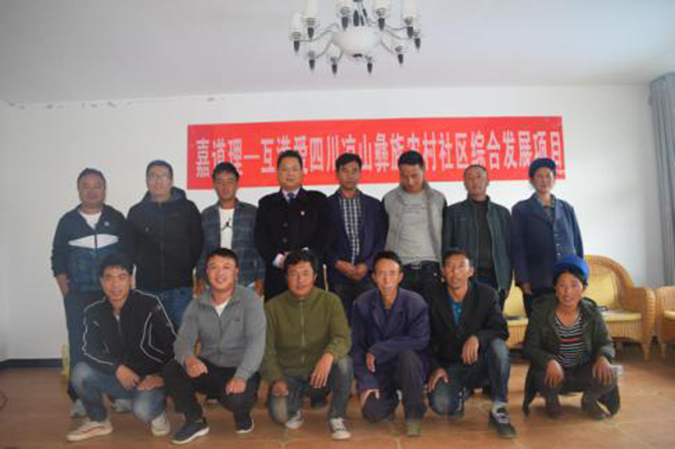
Group photo
About the Project
Comprehensive Rural Community Development Project in Liangshan Yi Autonomous Prefecture, Sichuan Province is funded by Kadoorie Charitable Foundation and launched by the Sichuan Representative Office of the Federation for Associations connected to the International Humana People to People Movement (Switzerland) in association with the Bureau of Poverty Alleviation and Immigration of Butuo County. The project covers 462 households and 1802 villagers of Shougu Village and Luo’en Village of Le’an Township, Butuo County, and will practice the development model of “Foundation + Government + Commonweal Organization” to take part in accurate poverty alleviation and improve income and living quality of local villagers.
The project is funded by Kadoorie Charitable Foundation
This article only represents the views of the author and not the views or positions of the donor.